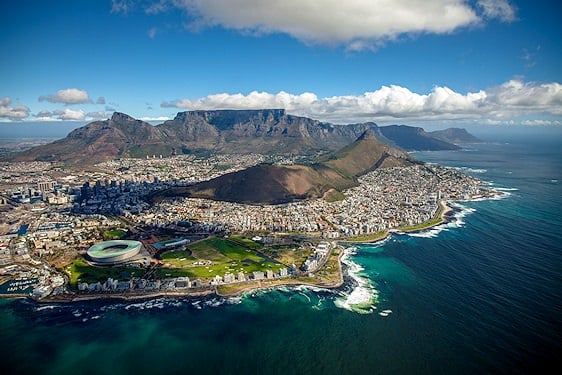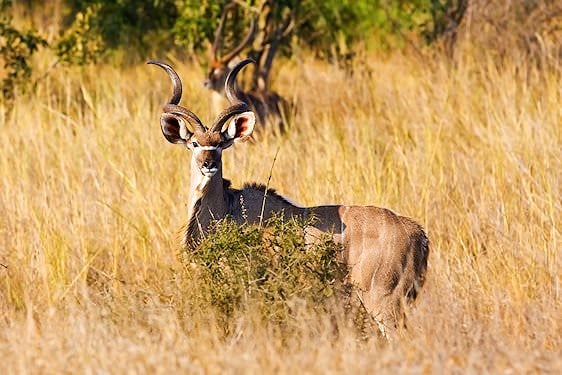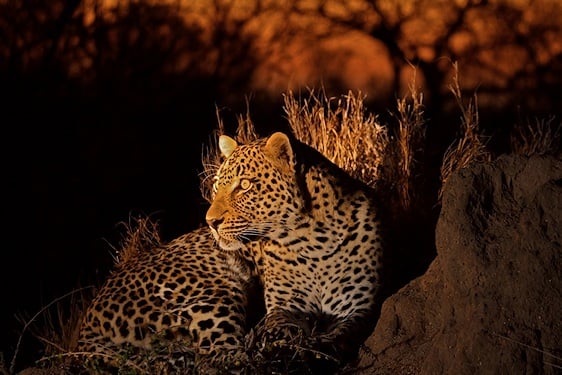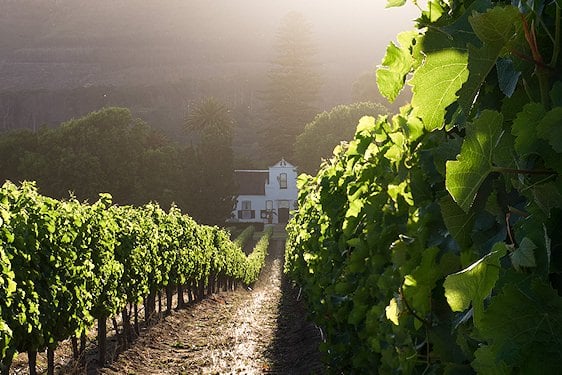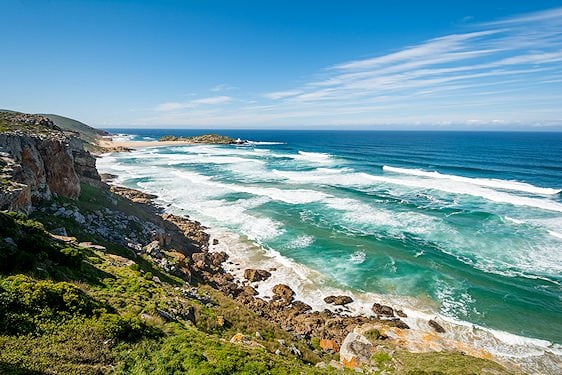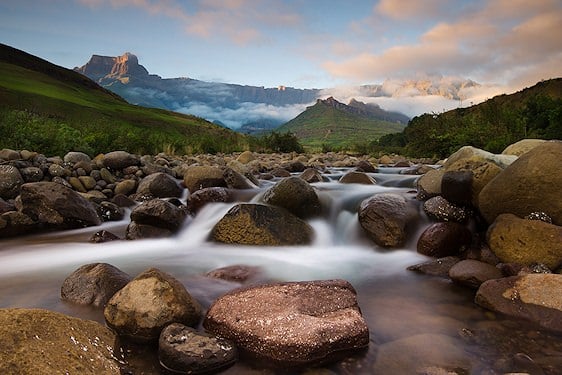South Africa Travel Destinations & Vacations
Help Me Plan- Home
- >
- African Travel
- >
- South Africa
South Africa Destination Guide
South Africa, known globally as the "world in one country," offers unparalleled diversity, from the iconic Big Five safaris of the Greater Kruger area to the breathtaking mountains and vineyards of the Cape. This destination guide provides the essential, reliable information you need to plan your ultimate vacation, covering travel logistics, health advice, and the best time to visit. As South Africa maintains its status as a top African destination, having welcomed over 8.5 million international tourists in 2023, let our expertise help you craft your tailor-made experience.
Getting to South Africa
Most international travelers arrive via O. R. Tambo International Airport in Johannesburg or Cape Town International Airport. Johannesburg, the country’s main air hub, is typically the start and end point for safari tours. Cape Town is the gateway to the Western Cape’s highlights, including the Winelands, West Coast, and Garden Route.
Weather & Best Time to Visit
- Cape Region: Mediterranean climate—hot, dry summers (Nov–Mar) and cool, rainy winters (May–Aug). December–February..
- Kruger & Safari Areas: Subtropical—summer rains (Oct–Mar) and cool, dry winters (May–Sep). Best for wildlife: May–September..
Visa Information
Visas are not issued at South African ports of entry; airline officials must verify them before allowing passengers to board. If you arrive without a required visa, immigration officials can deny entry and arrange return travel. Official South Africa Visa Information and Application Process.
Medical Considerations
Most travelers to South Africa need only be up to date on routine vaccinations (MMR, DTP, varicella, and polio). Malaria transmission in South Africa is limited to specific low-lying areas of Limpopo, Mpumalanga (including Greater Kruger), and northeastern KwaZulu-Natal. The rest of the country is considered malaria-free for typical tourist itineraries. Pack prescription and allergy medication, and consult your physician.
Safety
Our professional guides prioritize your safety throughout your trip and will advise on precautions in busy areas so you can travel with confidence.
Traveling Around
On guided tours with African Sky Safaris & Tours, transport is in a private, comfortable, closed, air-conditioned vehicle. This applies to the Western Cape (Cape Town, the Winelands, the West Coast, and the Garden Route) and to any overland safaris that include accommodation in standard rest camps rather than private safari lodges.
At private game reserves, game drives are conducted in purpose-fitted open 4x4 vehicles designed to enhance your safari experience. Most regional flights are on reputable commercial airlines such as FlySafair and SA Airlink, with occasional light aircraft charters for remote lodges. Other transport options include luxury rail journeys on the Blue Train or Rovos Rail.
Top Destinations in South Africa
South Africa's top travel destinations are among the world's most alluring attractions.
Cape Town is one of the world's most splendidly displayed cities and the top travel destination in South Africa.
Kruger Park is a natural treasure and one of Africa's largest and most diverse safari destinations.
Luxurious lodges and exceptional wildlife encounters are what you can expect when traveling to the Sabi Sand.
Not far from Cape Town, the Winelands is a region of lush vineyards set against rugged mountain scenery.
Beautiful forests, coastlines, family activities, and world-class golf make this region a top destination.
South Africa's most diverse province is a destination that offers Big Five safaris, beach vacations, and historic battlefield tours.
South Africa Vacation Options & Travel Tips
When you plan to travel to South Africa, you have many choices. We offer a range of pre-designed itineraries or can tailor one to your wishes.

Tours, Safaris & Honeymoons
Vacation options include 'Big Five' safaris and private tours.

Tailor-Made Vacation Packages
All our tours and safaris can be customized.

Travel Tips & Advice
Important information about visiting Southern Africa.
Other Destinations, Attractions & Activities
Beyond the top highlights, South Africa offers diverse parks, reserves, provinces, attractions, and activities to suit every interest.
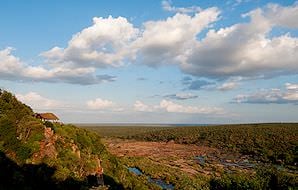
National Parks
South Africa’s 20+ national parks protect unique wildlife and landscapes, from Kruger’s Big Five to the West Coast’s delicate coastlines.
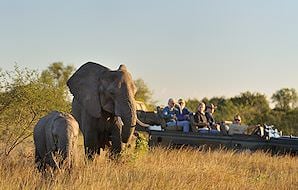
Private Reserves
Luxury safari experiences with limited vehicles and excellent game viewing, from Phinda’s forests to malaria-free family reserves.
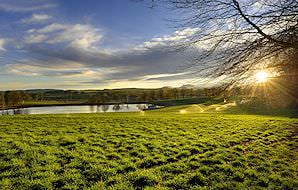
Provinces
Nine diverse provinces offer everything from bustling Gauteng and coastal KwaZulu-Natal to the dramatic scenery of the Cape regions.
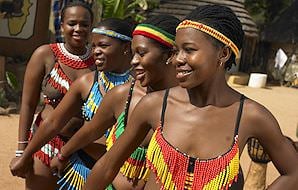
Attractions
From Cape wine routes to Mpumalanga waterfalls, South Africa’s natural and cultural attractions promise endless discovery.
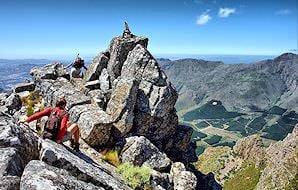
Activities
Choose from thrilling adventure sports, guided cultural tours, and tranquil beach days to craft your ideal South African journey.
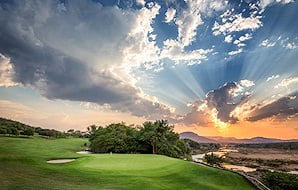
Golf Courses
World-class golf courses with spectacular backdrops, from coastal fairways to Kruger-side greens overlooking wildlife.
South African Travel Video & Facts
Those who travel to South Africa will find that the world in one country offers many destinations and a vacation package to suit every budget.
When traveling in South Africa, visitors will encounter many different landscapes, from subtropical rain forests and semidesert stretches to snow-capped mountains, sugar-fine beaches, and grassland game reserves.
Amazing Diversity
South Africa offers unmatched variety — from legendary Big Five safaris and scenic wine routes to mountain hikes, coastal beach walks, whale watching, and vibrant cities brimming with history, culture, and cuisine.
- Lion sightings in Kruger National Park.
- Rhino tracking in Hluhluwe–iMfolozi.
- Elephants in Addo’s open plains.
- Leopard encounters in Sabi Sand.
- Whale watching along the Whale Coast.
- Penguins at Boulders Beach.
- Walking on Cape Town’s beaches at sunset.
- Great white shark cage diving.
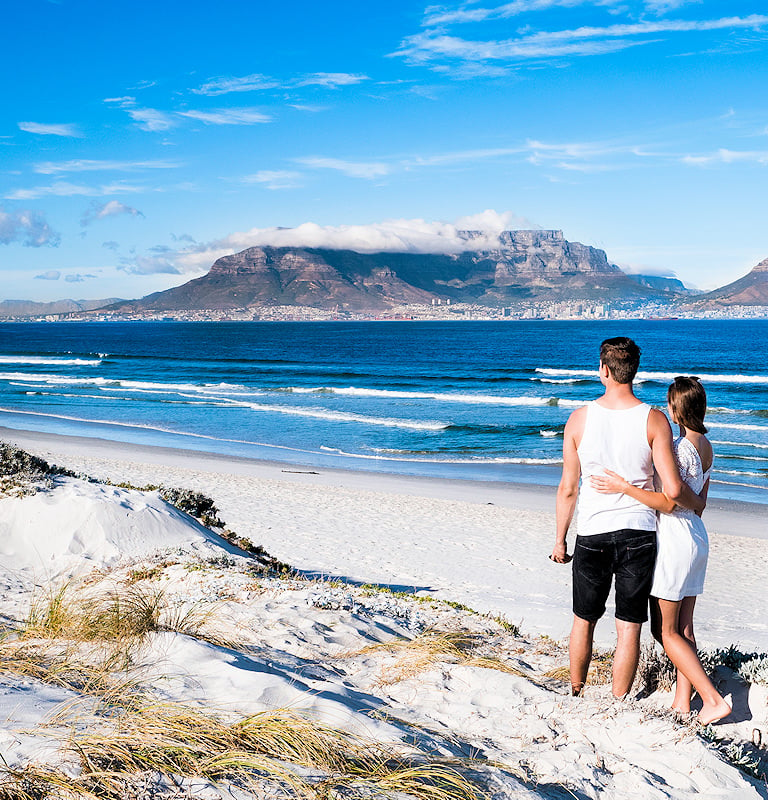
Foods to Try in South Africa
South Africa's cuisine is rich in heritage and diverse in culture. Most common dishes are available in South Africa, but those who want to explore the local flavors will find a rich buffet worth exploring.
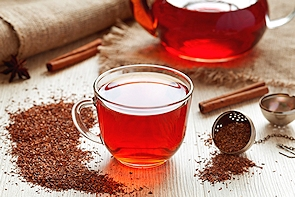
Rooibos
One of South Africa's most beloved local products, rooibos (red bush), is typically consumed as herbal tea. Naturally caffeine-free and flush with health benefits, enjoy it black, with milk, a 'red' cappuccino, or even iced tea.
Boerewors
Boerewors ('farmer sausage') is a local specialty that makes for popular braai fare. The sausage comprises coarse-minced beef and pork fat, and you will find that most local butchers have their unique recipe of added spices.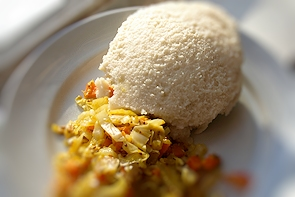
Mealiepap
Known as 'sadza' in Zimbabwe and 'nsima' in Zambia, 'mealiepap' is a porridge made from ground maize. It is a popular dish across most of Southern Africa—served in various ways, from stiff and thick to dry and crumbly.
Sweet Treats
Favorite desserts include malva pudding (sticky brown sponge pudding, served with homemade custard), melktert ('milk tart,' a crusted custard-like pudding with cinnamon), and koeksisters ('cake sisters,' a syrupy snack).South Africa Travel FAQ
When you arrive in South Africa, our guide or representative will meet you at the airport or at a pre-arranged location of your choice. We’ll confirm the exact meeting point and your guide’s contact details before you travel.
South Africa primarily uses Type M plugs (three round pins) and is increasingly adopting the newer Type N (SANS 164-2) standard. Mains electricity is 230V at 50Hz. bring a universal adapter and check your devices’ voltage compatibility; many hotels also offer multi-standard outlets.
Yes. Major centers and popular travel regions have reliable Internet and good mobile coverage. Reception can be limited in remote areas and at some safari lodges. Many lodges provide Wi-Fi in common areas; consider purchasing a local SIM or eSIM for broader coverage.
Visa and MasterCard are widely accepted; many establishments also accept American Express. Some smaller shops and remote properties may prefer cash. Inform your bank of travel dates and expect occasional ID checks for card security.
ATMs are readily available in cities, airports, and towns. Most Visa and MasterCard credit cards will work, and many (though not all) international debit cards do as well. Withdrawing local currency (ZAR) at an ATM is typically cost-effective—watch for your bank’s fees and daily limits.
South Africa offers many excellent safari areas, but for first-time visitors we always recommend the Greater Kruger National Park for its wildlife density, guiding quality, and lodge variety. Private reserves like Sabi Sand offer outstanding big cat viewing and limited vehicle numbers at sightings.
Yes. Tap water is generally of a high standard in South Africa, and bottled mineral water remains readily available everywhere you travel. If you have a sensitive stomach, use bottled water in remote areas and when brushing teeth, just to be cautious.
While crime can be an issue in major cities, none of our guests have come to harm while traveling with us. Remain vigilant in busy areas, keep valuables out of sight, use hotel safes, and follow your guide’s advice on where to go and how to move around safely.
For peak periods—especially December holidays and the Greater Kruger area in July–August—we recommend planning at least six months or more in advance to secure preferred lodges and room types. Shoulder and low seasons offer more flexibility, but early booking still helps with availability.
Yes—our tours are privately guided. Honeymooners and independent travelers can opt for more personal time, and our flexible approach lets you choose when to enjoy guided activities and when to relax on your own. Your consultant will tailor the balance to your preferences.

